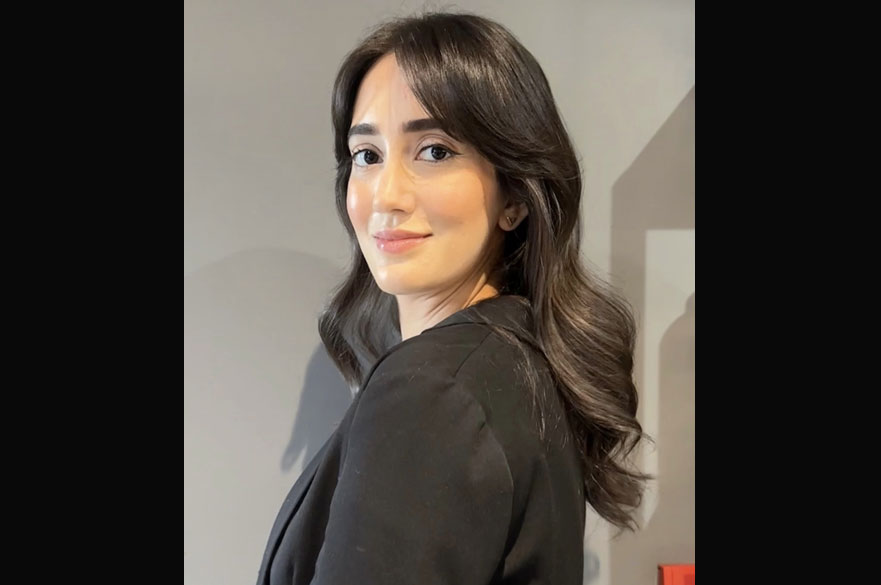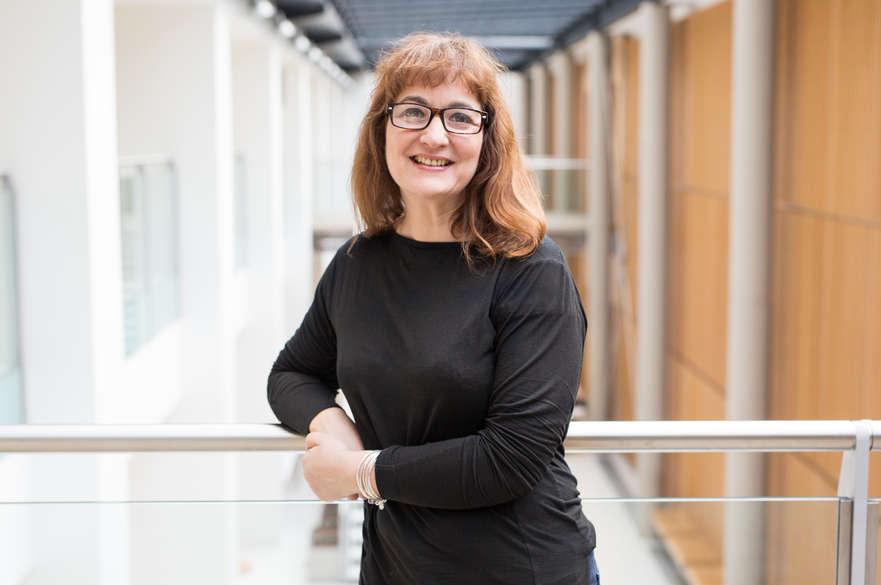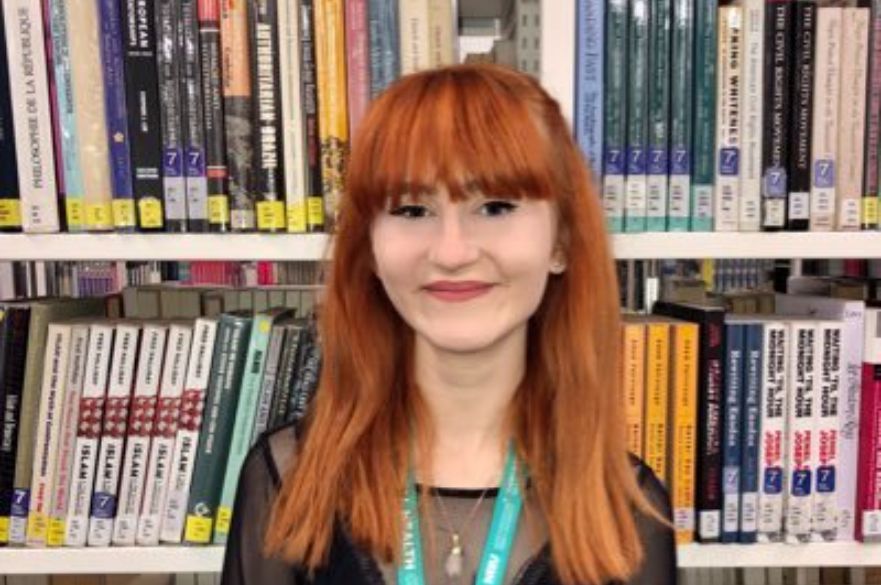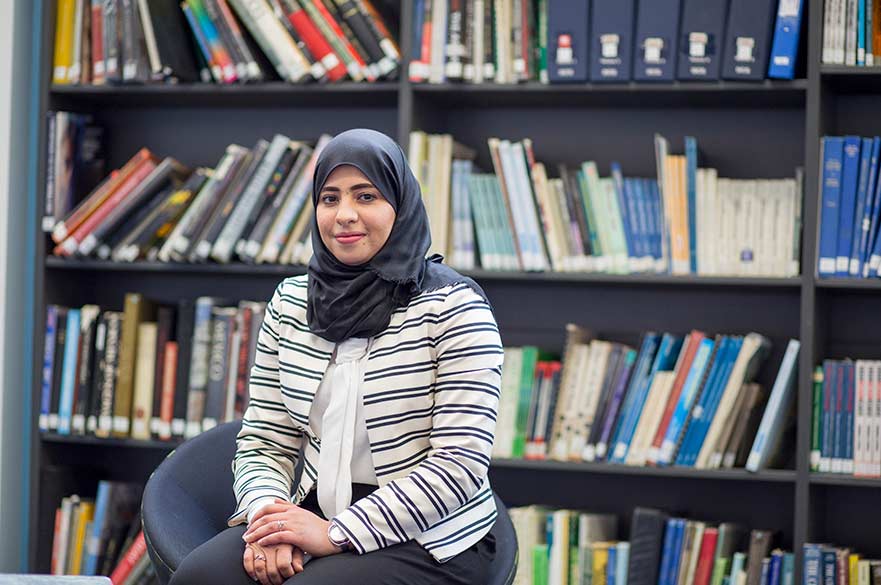
Ramisha
Rafique
The staff who taught me at undergraduate and postgraduate level were always very supportive and extremely generous with their time and attention.
More about Ramisha
Having graduated with both a BA in English with Creative Writing and an MRes English, Ramisha Rafique has gone on to study a PhD at NTU specialising in Postcolonialism. Ramisha talks to us about why she undertook a PhD, her biggest highlights at NTU so far including establishing Islamophobia Awareness Month, and her plans for the future.
Why did you choose to study at NTU?
I wanted to do a PhD eventually and I couldn’t see myself studying anywhere else, I really enjoyed my experience as an NTU student in the past. The staff who taught me at undergraduate and postgraduate level were always very supportive and extremely generous with their time and attention. This really encouraged me to continue my academic journey at NTU. I applied for the Dr Pauline Polkey scholarship which I was awarded and went on to complete my MRes in English Literary Research at NTU.
What did you learn – both inside and outside of lectures?
I’m really grateful to have taken this MRes as it allowed me to really improve my academic writing and research skills and I was able to focus further on the research area that I wanted to specialise in (Postcolonialism). I’ll also cherish my experience of being the MRes Course Representative and Arts and Humanities PG Student Representative because I was able to help other students and learn more about why staff and student collaboration is so important at NTU. I was able to organise panels and really make an impact which contributed to establishing NTU’s Islamophobia Awareness Month which I later convened during my PhD.
What does your current day involve?
My every day varies depending on the work I have to do and other activities around the university that I’m involved with. A typical day starts with my morning prayer. I mostly work from home so I’ll have my coffee/breakfast and sit at my desk. Considering my priorities and goals for that week, I make a ‘to-do’ list for the day and check my emails. Then I work on thesis-related tasks using a Pomodoro technique for the rest of the morning (it’s a very productive time-management technique and you can find different styles of Pomodoro videos on YouTube). After lunch, if I don’t have meetings or need to be on campus I’ll continue to work on my thesis using the Pomodoro techinque. In the evening I either play tennis, go to the gym, or relax by reading a book or watching something on Netflix.
What attracted you to undertaking a PhD?
I’m very passionate about this research field and I was certain that I wanted to pursue a career in academia that allowed me to continue researching and creating impact from my work. I wanted to be more involved in postcolonial studies and research on Islamophobia which this PhD is allowing me to do. My PhD project is a combination of critical and creative writing elements. The critical element of my PhD explores the ontology of the postcolonial flâneuse and decolonisation in British Muslim women’s writing. For the creative component of my project, I am producing a collection poetry.
What challenges have you faced?
During my PhD I have had to apply for research funding many times to undertake research trips and attend conferences that I have also presented at. Getting any kind of funding is very competitive and difficult and it was quite stressful because without the funding I wouldn’t have been able to attend conferences or present my work and build connections with other researchers. However, I was really determined and with the help of my supervisor, I researched all the options available to me. I then filled in application forms and was eventually fortunate enough to be awarded some funding that allowed me to travel for my own research and research conferences. This funding has allowed me to travel to London, Paris, and Istanbul. I have also presented a paper at the Canadian Association of Commonwealth for Commonwealth Literature and Language Studies’ (CAPS) conference at CONGRESS23 in Toronto for which I was the runner up for Graduate Student Prize Panel. Writing funding applications has given me an extra skill for my CV and having been awarded funding has encouraged me to be confident and always try even if I think something is very competitive and the chances are really slim.
What have been the highlights and biggest challenges of your PhD so far?
Two highlights from my PhD so far have been establishing Islamophobia Awareness Month at NTU which I look forward to seeing grow and integrate into our university in the future and NTU officially adopting a definition of ‘Islamophobia’. This has shown me the impact of my research and practice within the university and encouraged me to continue my work outside of NTU too.
As with any job, finding balance between work and life can be a challenge. I’m still learning that rest and recovery can be equally as productive when needed.
What are your plans for the future?
I would like to continue my research and pursue a post-doctorate. Eventually I’d like to become a lecturer in my specialised field.
If you had a time machine, what would you go back and tell your undergraduate self at uni?
I would tell my undergraduate self: University doesn’t just need to be about just one thing. Have fun and don’t feel guilty about it. Be confident. Go join the tennis society!
Finally, is there anything else you’d like to share with our alumni community?
Always do what you're passionate about and don’t give up. If you follow what you’re passionate about you’re going to do well and be happy within yourself.
Study English at NTU
Our seasoned community of writers, poets, authors, researchers, linguists and guest lecturers will guide and inspire you, consolidating your skills and knowledge.
NTU graduate?
Stay connected with the NTU alumni and supporter community.
Still need help?
-

STUDENT PROFILE
Jean Morris
Research degrees in Arts and HumanitiesUnited Kingdom
https://www.ntu.ac.uk/study-and-courses/courses/our-students-stories/arts-humanities/jean-morris
-

STUDENT PROFILE
Olivia Foster
Research degrees in Arts and HumanitiesUnited Kingdom
https://www.ntu.ac.uk/study-and-courses/courses/our-students-stories/arts-humanities/olivia-foster
-

STUDENT PROFILE
Amal Hanashi
MA Teaching English to Speakers of Other Languages (TESOL)Oman
https://www.ntu.ac.uk/study-and-courses/courses/our-students-stories/arts-humanities/amal-hanashi